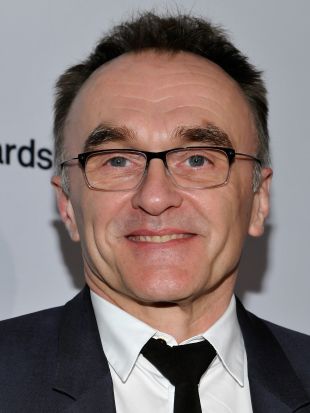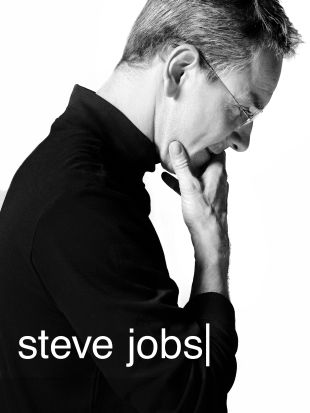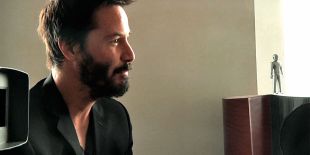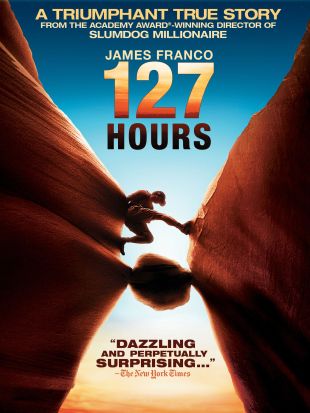One of Britain's most celebrated breakthrough talents of the '90s, director and producer Danny Boyle made his name with his acclaimed 1996 adaptation of Irvine Welsh's Trainspotting. An angry, scabrously funny film about a group of Edinburgh heroin addicts that took a non-judgmental approach to drug use, the film won equal parts praise and controversy, as well as lasting fame for its director.
Born in Manchester, England, on October 20, 1956, Boyle grew up going to the cinema. Somewhat ironically -- given that he didn't set foot in a theatre until he was 18 -- he started his career in the theatre, as it seemed to him the most accessible way of getting into the arts. He first worked with the Joint Stock Theatre Company and then with the Royal Court Theatre Upstairs, where he was the Artistic Director from 1982 until 1985. In 1985, he became the Deputy Director of the Royal Court Theatre, where he stayed until 1987.
During the '80s, Boyle also began directing for television, making TV films and serials. He made his feature directorial debut with Shallow Grave in 1994. A stylish, darkly humorous psychological thriller set in a posh flat in Edinburgh's New Town, it was the first collaboration between director Boyle, producer Andrew Macdonald, and screenwriter John Hodge. It received strong reviews on both sides of the Atlantic and was a commercial success in Britain. Two years later, Boyle, Macdonald, and Hodge (along with Ewan McGregor, who had starred in Shallow Grave) re-teamed to make Trainspotting. The huge success of the film -- it became the U.K.'s second most popular film in history to date, after Four Weddings and a Funeral -- propelled its makers and star McGregor into the international spotlight, and it became one of the most provocative and talked-about films of the decade.
Boyle followed up Trainspotting in 1997 with another Hodge-Macdonald-McGregor collaboration, A Life Less Ordinary. A romantic comedy featuring karaoke and a pair of ferocious angels (Holly Hunter and Delroy Lindo), it starred McGregor and Cameron Diaz as mismatched lovers at odds with the law and each other. Despite the anticipation surrounding the film, it met with heavily mixed reviews and virtually dissipated at the box office. That same year, Boyle served as executive producer for Twin Town, a surprisingly popular Welsh film that featured much of the rough-edged humor of Boyle's previous work.
After passing up the opportunity to direct the fourth Alien movie, Boyle opted to make The Beach (2000), an adaptation of Alex Garland's acclaimed novel of the same name. A story of paradise gone wrong, it was shot in Thailand and starred Leonardo DiCaprio as a young American who encounters the darker side of human nature while backpacking through Asia. Though it was anticipated to be quite a big film for Boyle, The Beach ultimately suffered from not only a severe critical backlash but also incurred the wrath of Garland fans by altering the bleak ending of the novel for a more safe mainstream coda. If A Life Less Ordinary had disappointed fans, The Beach made them out and out angry, and for his next two films, Vacuuming Completely Nude in Paradise and Strumpet (both 2001), Boyle would go back to the basics. Even if neither of those films ultimately received wide release (they were shot for U.K. television), they did offer Boyle the chance to return to his low-budget roots and experiment with digital video -- which was the format he would eventually turn to for his next wide-release effort, 28 Days Later.
Perhaps his most successful and widely embraced film since Trainspotting, 28 Days Later offered a harrowing vision of a post-apocalyptic London ravaged by the terrifying effects of a "rage virus." A sort of updating of the George A. Romero zombie mainstays, Boyle's film differed in that unlike the creatures in Night of the Living Dead and its sequels, the creatures in this film did not stagger mindlessly but attacked their victims with violent vengeance. A critical and financial success both in the U.K. and the U.S., 28 Days Later scored a direct hit at the box office, thanks to its energetic thrills and healthy word of mouth. On a curious historical note, the film became something of a rarity when, months after its initial stateside release in June of 2003, it was rereleased into theaters with an alternate ending attached to the last reel.
After a brief return to short films with the sci-fi themed comedy Alien Love Triangle, Boyle returned to feature-film territory with a Millions, a comedy drama concerning two boys who -- despite having the good fortune of stumbling across a healthy sum of money stolen from a nearby bank -- must quickly spend the money before the U.K. switches to the Euro.
He reteamed with Cillian Murphy in 2007 for the sci-fi film Sunshine, but it was 2008's Slumdog Millionaire that made him an internationally known filmmaker. The tale of love and struggle and game shows in India swept the year end award race capturing Oscars for Best Picture and Best Director. He returned to the awards race ttwo years later with the gripping drama 127 Hours. He had a hit on stage directing a version of Frankenstein in which Jonny Lee Miller and Benedict Cumberbatch would regularly swap the roles of Victor Frankenstein and the Monster.



